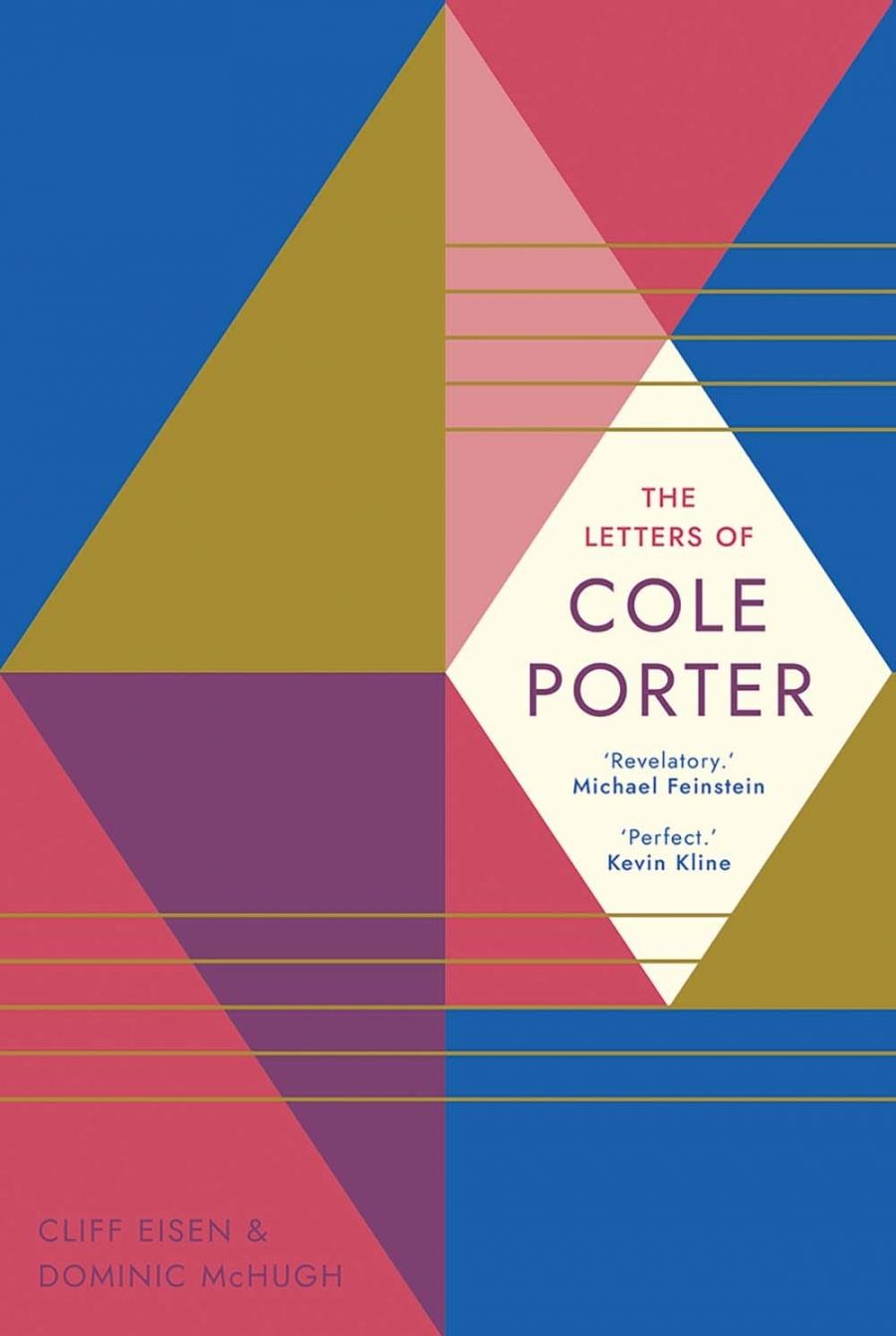
- Free Article: No
- Contents Category: Letter collection
- Review Article: Yes
- Custom Highlight Text:
Sometime in the early 1970s – his health poor, his country’s no better – the English composer Benjamin Britten asked his good friend and publisher Donald Mitchell to write his biography, imploring him to tell the truth about his long-term relationship with the tenor Peter Pears. In the ten years that followed Britten’s death in 1976, Mitchell amassed thoughts and notes, all the while deflecting the common query among friends and those outside the hallowed circle, ‘How’s the biography going?’
- Featured Image (400px * 250px):

- Book 1 Title: The Letters of Cole Porter
- Book 1 Biblio: Yale University Press (Footprint), $69.99 hb, 675 pp
Cole Porter (1891–64) – a generation older than Britten – shared a number of qualities with his fellow composer. Both were gay, both ultimately extremely wealthy, and each was architect of his respective art form in his respective country. ‘At boarding school I was always taught,’ Porter wrote in one lyric, ‘not to reveal what I really thought, / Nor ever once let my eyes betray / The dreadful things I longed to say.’ (This could also have been Britten.) Porter was the more carefree of the two; both music and character displayed a cheerfulness that Britten rarely exhibited. He fast traded in his Midwestern upbringing and drawl for a glib East Coast, martini-at-six, Whiffenpoofs and Yale frat-boy sophistication that, combined with the European modernism he soaked up in the 1920s and 1930s, served him and his audiences on both sides of the Atlantic extremely well.
Seemingly unfazed by his own sexuality (unlike Britten), Porter in 1919 nonetheless married the remarkable divorcée Linda Lee Thomas a year after meeting her while he was on active service. The couple thereafter lived their lives together and apart with seemingly great gallantry, wealth, and mutual respect: roses and engraved hipflasks on opening nights (there were many); country houses and city pieds-à-terre; extensive and luxurious travel together; and much looking elsewhere when faced with the other’s liaisons and intimate friendships. Porter’s carefully managed façade slipped when he was bored, horny, or in pain (the consequence of a terrible horse-riding accident in 1937), at which point Thomas would either fight her corner or retreat hurt to the country.
Such emotional details are missing from this collection of Cole Porter’s letters. Cliff Eisen (a distinguished Mozart scholar) and Dominic McHugh say upfront that their intention was not to write a biography, which puts an awful lot of weight on the content of the letters. Perhaps it was not an unreasonable assumption that the letters would be up to the task, except it turns out that one of the great stage wits of the twentieth century – the man able to rhyme Strauss and Mickey Mouse, the Tower of Pisa and the Mona Lisa – is a bit of a bore.
It’s not simply that Porter was method-acting his way through what he thought was needed for a successful Broadway career, and thus careful in what he said; this same career took some time to ignite, and the gay relationships before then were hardly discreet. It’s more that as a correspondent he never had anything terribly interesting to say. Letters to Linda are solicitous and chatty, as are those to his various lovers, who deflect his light-hearted neediness without terribly much care or sophistication. Letters to Sam Stark are usually more forthright (though it is not made explicit in these pages whether or not he was a lover), though even to Stark the best line – concerning Wallis Simpson – belongs to Linda: ‘She says Jimmie Donahue’s valet is quoted as having said “Mr. Jimmie’s relationship with the Duchess, I realize now, is more than a friendship. After he has been out with her, I always find lip-stick on his shorts.”’ And though a cast of some of the century’s greatest artists passes through these pages – Diaghilev and Dalí, Stravinsky and Berlin – they do so with little comment. (A rare exception: ‘Arthur Rubinstein who, as always, played well enough before supper + marvelously afterwards’ – a tacit acknowledgment of Rubinstein’s prodigious love of good food and wine.) Even correspondence with his various collaborators is unrevealing. Porter writes of lyrics he is forwarding them – though rarely how he came up with them – and of facile alterations to various infamous lines to satisfy the censor, but mostly the art of collaboration happens off camera. The origin stories of some of his most famous lyrics shift over time and in any case sound pretty apocryphal in the first place.
Was he a better songwriter than a judge of collaborator? Probably. The real hits – Kiss Me, Kate (1948), Can-Can (1953), and perhaps Silk Stockings (1955) – featured fights and fallings out. Not even the phenomenal success of Kiss Me, Kate on Broadway, film, and in the West End ensured a follow-up collaboration for playwrights Bella and Samuel Spewack. (Britten’s librettist for Peter Grimes, Montagu Slater, was treated similarly.) Instead, an excessively formal relationship between them is played out in the correspondence, Bella suggesting one idea after another, only for Porter to wave it away with a weary hand.
Yet still that weary hand produced some of the great songs of the century. Perhaps ultimately his métier was the small scale, the perfect worlds he created in songs lasting no more than four minutes – with their (barely concealed) risqué lyrics and superb harmonic frameworks – which he more or less handed over to his collaborators to link together as they saw fit. If so, that’s no mean achievement. A good critical biography would do him justice.


Comments powered by CComment